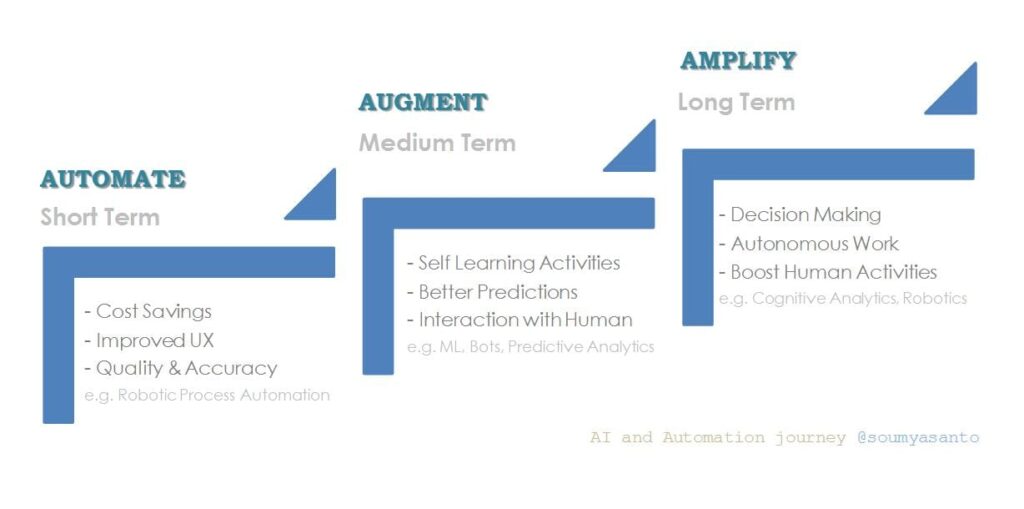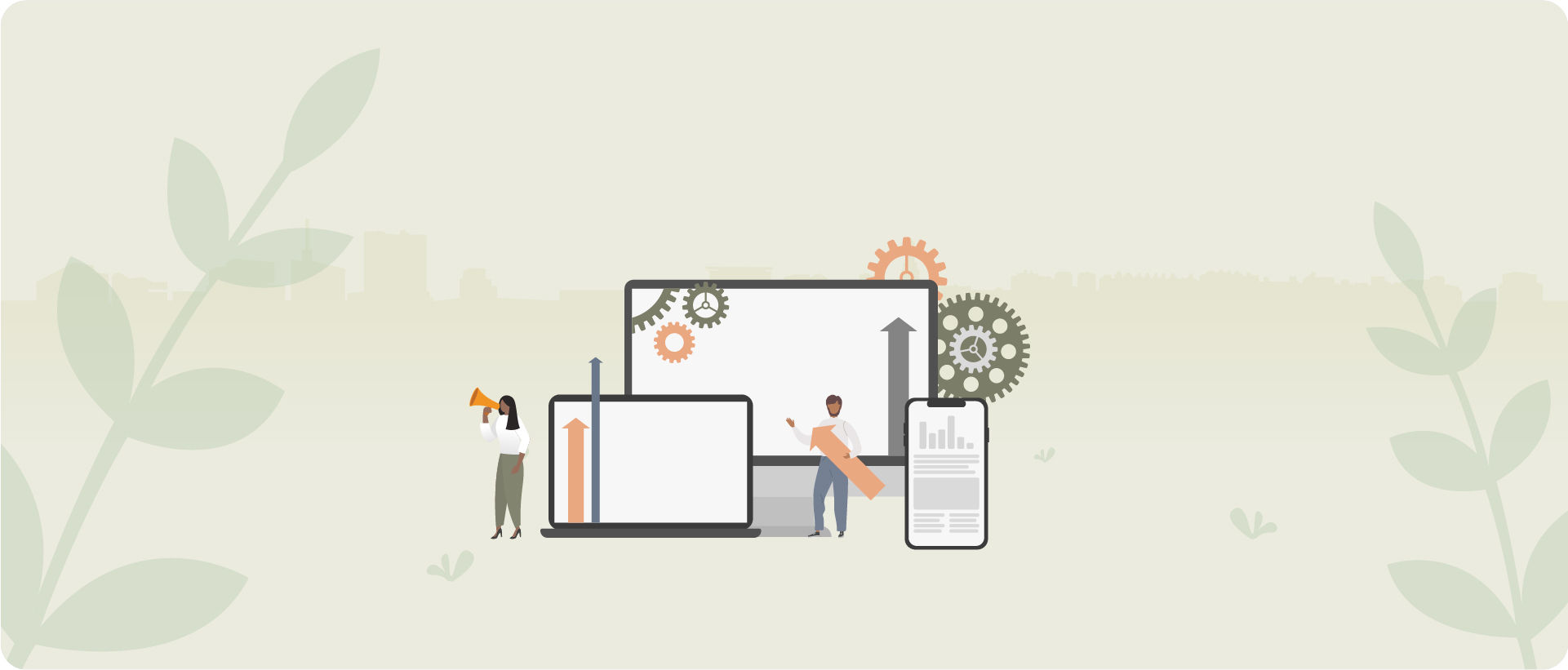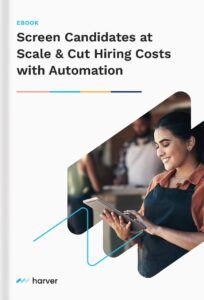You keep hearing about “automation” and “artificial intelligence (AI).” From CHROs to recruiting specialists, HR professionals are buzzing about these terms. But what do automation and AI mean for TA and TM teams? How are they different? And, most importantly, how can automation and AI help your HR team?
Figuring out how automation vs AI fit into an HR tech stack or workflows can be confusing. Especially when some solutions providers blur the lines. Want to make informed decisions for your organization? Read on to learn what automation and AI are, and how they can benefit TA and TM teams.
Automation vs AI – how are they different?
At a high level, automation uses technology to complete frequent tasks using pre-defined rules. These actions can often be menial, otherwise requiring significant human time and effort. Think of a computer following a flowchart to automatically continue a process.
For example, imagine that a candidate meets the pre-determined cutoff during the screening stage. With automation, this could trigger sending an email with a link to schedule an interview. No recruiter needs to do this manually over and over, and no candidate needs to wait. It’s the same controlled rules being followed by a computer as a human. Just far more efficient for your employees and candidates.
Meanwhile, AI leverages algorithms that can learn and develop over time. Instead of simply automating basic tasks by following predetermined rules, AI can make more complex decisions by training itself on large sets of data. For instance, using natural language processing to remove biased language from job descriptions.

What is automation in HR tech?
Examples of HR automation
In his article on what’s hot in HR tech in 2023, Josh Bersin notes that HR tech platforms can automate “junk work” to provide value via cost savings. For instance, automating the scheduling (and rescheduling) of interviews with candidates. Other examples of HR automation include screening candidates based on keywords in resumes or automating the traditional reference checking process.
Benefits of HR automation
By automating repetitive tasks, your organization can increase efficiency and lower costs. No wonder 69% of HR professionals say automation or AI help improve time to hire, according to SHRM. In fact, one BPO improved their recruiter efficiency 6x with Harver’s automated solutions. Plus, offloading lower value menial tasks has added benefits. For instance, freeing up human talent to focus on higher value, more strategic work like sourcing strategy.
What is AI in HR tech?
Examples of AI in HR tech
While you’ve likely been using AI for years (“Hey Siri…”), you might not be sure how AI can be applied in an HR tech stack. AI can parse large amounts of data (screening resumes) or identify patterns (de-biasing job ad language). As part of their demanding diversity aspiration, Kraft Heinz removes biased job description language with an AI-powered solution.
Another common example of AI in hiring is implementing conversational chatbots to engage candidates and speed up time to hire. For instance, Harver CHAT (Conversational Hiring AI Tool) can engage, screen, and hire all in the same day. As generative AI like ChatGPT continues to emerge, some HR professionals are also exploring uses like AI-driven candidate engagement communications.
Benefits of AI in hiring
In Understanding AI in HR, Josh Bersin points out how critical data is for training AI in HR use cases. After all, one of AI’s biggest potential benefits to HR teams is analyzing data. But in order to identify patterns among candidate pools or to inform workforce management, AI needs accurate and comprehensive data. Tip: Leading companies, like UPS, use soft skills data to enable leadership development.
Remember that utilizing AI in hiring and other talent decisions is still an emerging and contentious topic. Some lawmakers are concerned about unchecked AI regarding talent decisions. However, AI is a tool and can be used ethically. AI ethicist and Harver advisor Dr. Frida Polli likens AI usage to electricity: a powerful tool that can be used safely with proper guidelines and human oversight.
Hiring automation vs AI – what’s best for you?
There isn’t a one-size-fits-all approach for implementing HR tech of any kind. While this can seem daunting at first, it actually allows your organization to start with your specific business challenges and industry needs to find the best tailored solution.
One thing we recommend is to do your due diligence. Ask the tough questions when vetting vendors, like how exactly does the solution use automation, AI, or both? How do they evaluate and mitigate the effects of bias?
If you’re ready to learn more about automation in HR tech, download our free whitepaper Screen Candidates at Scale and Cut Hiring Costs with Automation.
You can also schedule a call with our experts. We’re here to listen to your needs and answer your questions about automation, AI, fair hiring, and more.
- White paper
Before you continue!
Interested in automation? Get your free eBook on how to automate screening to cut hiring costs.


